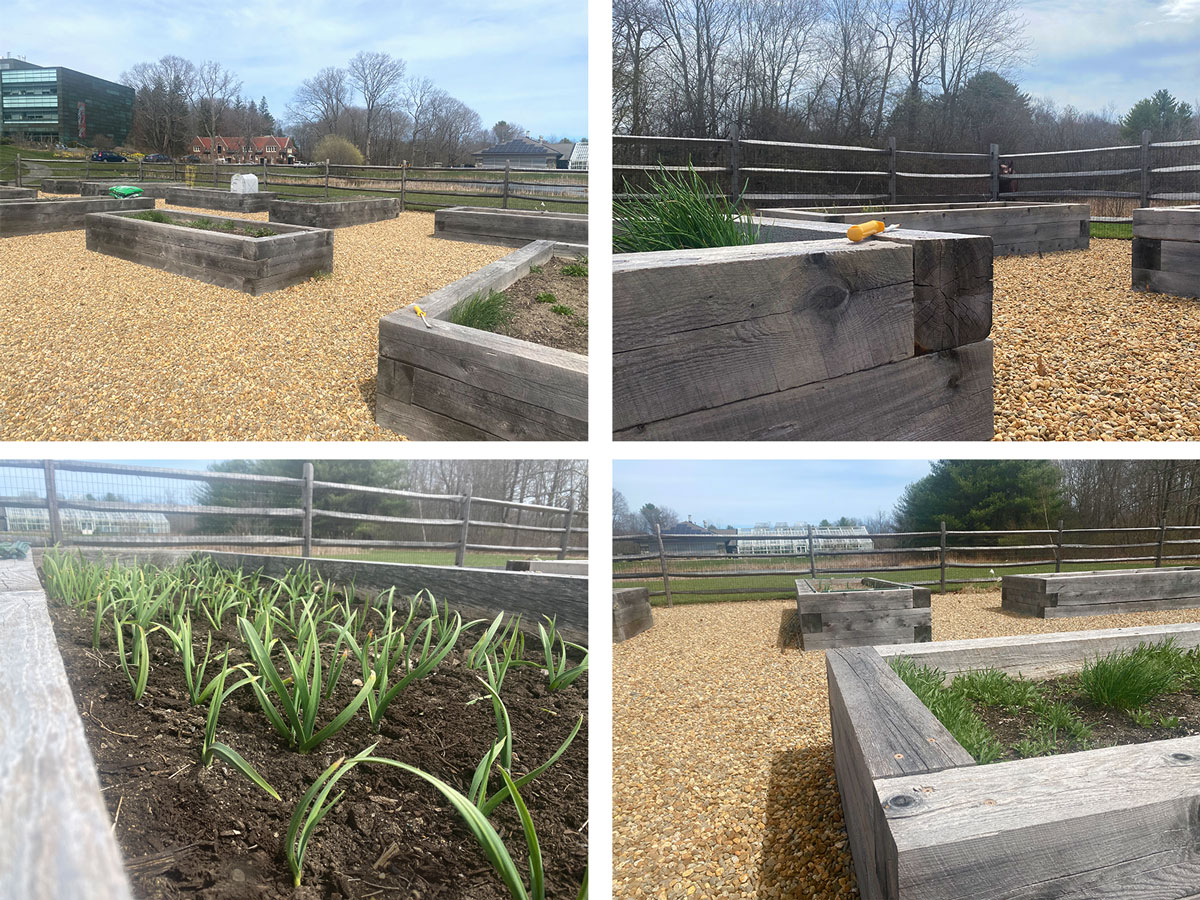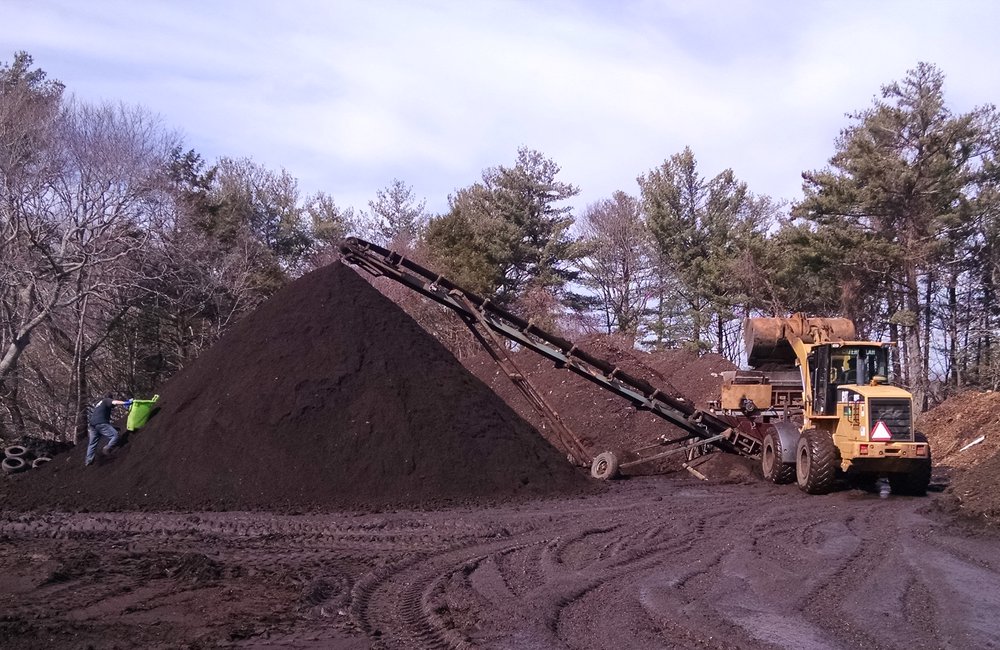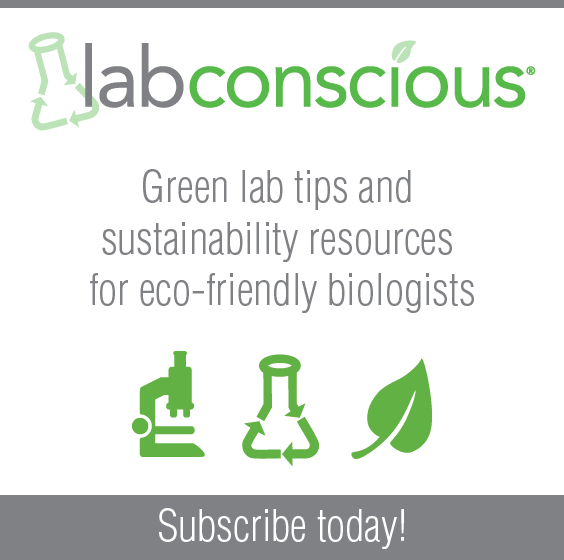
Composting - an unsung hero in sustainability
Posted on Thursday, April 13, 2023
By
Topic: Environment and social responsibility
Many of us are aware of the challenges with plastic waste, and the crisis facing our oceans today. However, we don’t often think about organic waste and its environmental impacts. Luckily, the practice of composting can help manage organic waste and improve the sustainability of gardens and farms.
Organic waste is defined as biodegradable waste that originates from plants or animals, which makes it sound fairly innocuous. But there are consequences from its disposal. Globally, organic waste typically goes into landfills, where it undergoes anaerobic decomposition, releasing methane (CH4), a potent greenhouse gas, as well as carbon dioxide (CO2) and other gases. Sadly, in some cases, nearby communities can suffer as landfill gas is notoriously irritating to breathe. In best case scenarios, landfill gas is collected as a renewable energy source, but the technology needed to do this is not widely available. If it doesn't end up in a landfill initially, organic waste is often incinerated and then ash landfilled. Fortunately, there is a better way.
Composting, by definition, is a controlled biological decomposition process involving microbes, fungi, and other organisms, and involves chemical reactions taking place in aerobic or anaerobic conditions. Water and oxygen levels must always be managed, and the aeration methods used determine composting cycle times. Organic waste eligible for composting can include “green waste” from landscaping, food waste, sewer waste, paper, or organic material fabrications. Tougher feedstocks, like cardboard, can be shredded in commercial composting setups.

Food grown with compost at the New England Biolabs Ipswich campus will be harvested for the NEB Café.
Interest in composting has grown over time, but there are still challenges. Special days like Earth Day and Stop Food Waste Day help drive awareness each April. The U.S. Department of Agriculture (USDA) is investing $9.4 Million in compost and food waste reduction projects in the U.S. and Europe. Curbside composting collections are reportedly rolling out this year for residents of New York City. The Clean India Mission is a project to achieve a zero-waste ecosystem, and the Indian government is offering subsidies for composting plants to improve waste management. South Korea makes compostable waste segregation mandatory. Currently, about 0.4% of food waste and 63% of yard waste is composted in the United States. Infrastructure for society wide composting has a way to go in most parts of the world. And the most basic challenge is eliminating contamination in compostable collections. Inorganics like glass are unacceptable. Food labels and stickers can be problematic. Plastics that claim to be biodegradable or biobased do not necessarily ensure that no microplastic particles are left behind to enter ecosystem food webs. Compostable plastics (cups, bags, forks, etc.) need to be Biodegradable Product Institute (BPI) certified in the U.S. It is crucial that composting be done right.
Black Earth Compost – from organic waste to garden soil
NEB’s headquarters in Ipswich, MA, USA uses a composting service called Black Earth Compost. Black Earth Compost’s owner, Conor Miller, raises the standard from typical composting services. Most composts do not use food waste as feedstock, and instead use grass lawn clippings. Black Earth skips collecting grass because of chemicals that can be introduced into the composting feedstock, and instead collects nutrient-rich food waste. Heat generated during composting helps to eliminate any pathogenic microbes or weed seeds, and the end-product from Black Earth Compost is exceptional soil for use in gardens. Miller knew that he wanted to offer this type of composting service when he first moved to New England from Seattle, Washington, where he grew up and ran his first composting business. The compost generated by Black Earth Compost is used in local communities, including school gardens that encourage children to appreciate nature and farming. New England Biolabs applauds the Black Earth Compost approach.

Courtesy of Black Earth Compost.
How can you start a composting program at your facility?
Organic waste usually makes up 33% of trash volumes. As much as plastic waste is a concern in the lab, organic waste should be a concern in the lunchroom. Form a green team of various stakeholders if you don’t have one yet and reach out to your facility waste hauler with questions. If a composting service is locally available, a waste audit will be needed to determine volumes. If local composting services are unavailable, investing in a commercial composter system for onsite use may make sense. These machines can reduce food waste volumes by up to 90% and turn them into a pleasant-smelling dry compost. It’s critical for everyone to understand that contaminating waste collections with non-compostable items ruins collections and increases costs. Training, posters, and reminders are key to preventing non-compostable contamination in your collections. Together, the science of composting and your efforts to segregate can help bio-waste become an eco-friendly resource for your community instead of an environmental burden.
New England Biolabs is committed to environmental sustainability - Learn more.
NEB will not rent, sell or otherwise transfer your data to a third party for monetary consideration. See our Privacy Policy for details. View our Community Guidelines.
Don’t miss out on our latest NEBinspired blog releases!
- Sign up to receive our e-newsletter
- Download your favorite feed reader and subscribe to our RSS feed
Be a part of NEBinspired! Submit your idea to have it featured in our blog.


